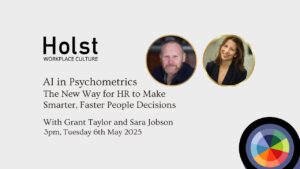
Transferable Human Skills. Bit of a mouthful. What we’re talking about here are communication, listening and discretionary skills beyond a basic level. You’d think these skills come easy to everyone, but the reality is increasingly different.
Deloitte Global’s report, The Fourth Industrial Revolution is Here – Are You Ready?, concludes that talent strategies are simply not fit for the fourth industrial revolution. Just 26% of respondents were highly confident they have the right workforce skills for the future. That’s a whopping 74% who felt that they could do better. Separate research published by Deloitte (The Power Up: UK Skills) argued that transferable human skills are increasingly prominent in driving UK employment growth. David Sproul, senior partner and chief executive of Deloitte north-west Europe, said: “Organisations that embrace a new stance on how they support and develop all of their people will map a clearer path to a stable and equal future for all.” That feels pretty obvious. But the development of employee and gig workers still falls short when it comes to investing in HR/L&D budgets. We understand the squeeze. It’s hard to put forward a business case for investment when the results are usually impossible to quantify in the short term. But these findings show a worrying trend. What can you do? How do you identify training needs in the first place? It’s not enough to make an arbitrary assumption of what your workers need, you need tools which help you to understand the specific development needs of your people. This is where the McQuaig Psychometric System excels. Most frequently used as a recruitment tool, McQuaig is very powerful as a development tool. Both the McQuaig Self Development Survey® and the McQuaig 360 Leadership Review highlight specific gaps that can be practically filled with training and development.
How to fill the transferable human skills gaps?
So going back to those communication, listening and discretionary skills that might be missing from your talent. Study and discuss their McQuaig reports. You might find quick wins in the area of facilitation skills. Perhaps team members don’t feel listened to in discussions or that meetings rapidly get out of hand and end without action. Financial literacy is something of a voodoo subject. There’s more than a whiff of ‘let’s gloss over that’ when it come to finance with non-finance people. But it’s surprisingly easy to be financially literate, as long as you attend the right training course. Or maybe your talent is ace with their content, but struggles to verbally deliver on stage or even in less formal situations. The Polished Presenter is the ideal foundation from which to develop terrific presentation skills. These skills are just as essential in pitches and team meetings as they are when presenting to a room full of strangers. It’s in these smaller gatherings where reputations and deals are often won or lost. Transferable, or soft, skills have been the poor relation for too long. Let’s give your talent the support and training they deserve to make your organisation a 21st century success.





